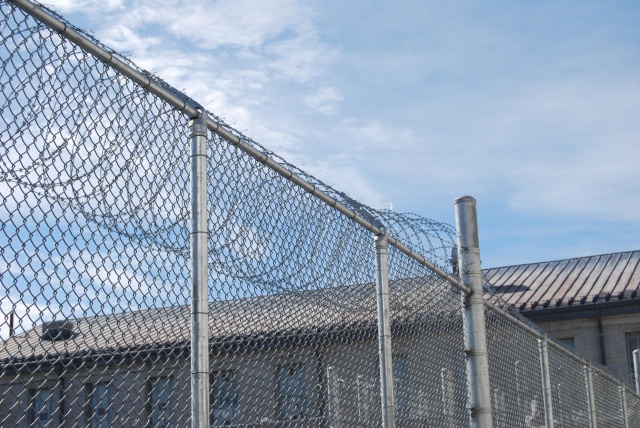TULSA — For years, Sarah Garland says she felt dirty and ashamed for some of the things she did in her life. An inmate at a women’s prison in Oklahoma, Garland says poetry has helped her overcome her inner demons.
“I was trying to get involved in anything that would help me stay focused and on the right path,” the 23-year-old said of joining Poetic Justice, a nonprofit organization that teaches poetry and writing workshops to female inmates in Oklahoma’s prisons and jails. Since March 2014, Poetic Justice has given them a chance to rehabilitate through therapeutic writing.
“The thing I love about poetry is it’s the most forgiving of writing mediums,” said Ellen Stackable, the program’s co-founder and executive director. “You can do anything you want, rhyme or not rhyme, it provides a conduit to go directly from your heart to the page without feeling like you’re breaking any rules. For women who have never written in their lives before, the thought of writing and writing about yourself can just seem overwhelming. Poetry provides a voice. And once you have a voice, you have an avenue toward healing and an avenue toward change.”
Oklahoma incarcerates women at twice the national average, with about 151 imprisoned per 100,000 women. Stackable said Poetic Justice has reached about 1,000 women prisoners.
For Garland, who must serve 85 percent of a 15-year sentence for forcible sodomy, juvenile porn and lewd acts to a child, the writing classes offer her a chance to feel accepted.
“As soon as you walk in, you just feel OK and accepted and people care,” Garland said.
She noted that volunteers in the program make sure people don’t feel too exposed, adding that after a woman gets done reading a poem, class leaders ask if the woman wants comments or reflections or silence.
RELATED
Incarcerated poets pen verses from Tulsa County jail by John Thompson
“You can have people give you words of encouragement or if you don’t want anything, you can just sit there for a minute and appreciate the writing. It just makes it a really safe environment,” Garland said. “They help you grow so much and pull things out that maybe you didn’t know. As I was writing some stuff, I’ve come to realize how true it is, and it’s come to change my entire outlook. I felt very dirty and bad for some of the things I’ve done, but I know deep down in my heart and soul I’m a good person, and writing has helped me solidify that fact.”
From one Tulsa jail to every women’s prison in Oklahoma
Stackable, who is currently a teacher in Tulsa, was studying for her master’s degree at the University of Oklahoma when she started looking at the state’s incarceration among women. She noted that although she had taught writing for about 20 years, finding a way to reach inmates seemed nearly impossible.
About a year later, a colleague at the Tulsa Schools of Arts and Sciences was doing a spoken word poetry event at the jail for men and invited Stackable along. She went and decided she would start something similar for women.
“Pretty quickly, it moved to therapeutic writing and restorative writing where we’re really trying to help women process through trauma and grief and just confusion,” she said. “It started at the Tulsa Jail with just a couple volunteers and within a year had almost 10 volunteers and four years later, it’s in every women’s prison in Oklahoma.”
In 2017, Poetic Justice released a short documentary called Grey Matter about the program. They are hoping to show it in each of Oklahoma’s 77 counties ahead of this fall’s election season as a way to highlight the women who are incarcerated.
Chairwoman: Writing ‘does so much to bring life to people’
Chairwoman and Tulsa-based elementary school teacher Hanna Al-Jibouri has been involved with the program pretty much from the start.
“I’ve learned so many things,” she said. “Some of the biggest takeaways are to not be afraid to call people out. I think there’s a lot of misconceptions and myths that need to be debunked around what it means to be in jail. More often than not, people don’t actually know what’s going on.”
She said she’s also learned that writing can change somebody’s life.
“That’s what Poetic Justice was founded on,” she said. “The writing can really lead to a creative outlet. It brings communities together. It allows creativity to be ignited. It does so much to bring life to people.”
A 2014 study of inmates who took part in art programming at prisons in California found that creative activities helped the inmates gain greater self-confidence as well as motivate them. Additionally, the study found “… inmate-artists were more likely to strongly agree or agree that they are ‘successful or competent in social situations’ and ‘communicate well with people’ than those without prior arts experience.” Studies also show that the arts can help with time management and self-discipline.
Class structure offers choice
Most classes are two hours long, but the actual writing time lasts only about 15 minutes. The classes start with an introduction to Poetic Justice and an ice-breaker. The women can read their poems and offer reflection. Each class ends with a positive chant about having a voice, hope and the power to change. Then, the poems are collected to eventually be published as a book. Classes in the jail last for six weeks, while the prison classes last for eight weeks. Two to four volunteers run each class.
The women also create their own class norms each week.
“The rules are whatever the women want them to be,” Al-Jibouri said. “That idea of choice and empowerment is super important in any classroom, but it’s even more important for women in jail because they’re not given a chance to have choice.”
Inmate: ‘It does take the edge off and makes you feel better’
Candida Ulibarri took part in the Poetic Justice class at the Tulsa County Jail.
“I’ve always liked poetry, and it just seemed like something to get me out of the environment I was in,” she said.
She said she was able to express herself and release some of her frustrations she was having inside. She wrote about her mom and the stress of being in jail.
“Getting all that off my chest and on paper — it was like a release,” she said. “It does take the edge off and makes you feel better — to have people hear it and accept it and give positive feedback on it also boosts your confidence.”
“When we try to better ourselves, a lot of people just brush us off because we’re inmates or because we’re just a felon or whatever it is,” Garland said. “I just appreciate and absolutely love the fact that [Poetic Justice] come in every day not looking at my DOC number. They make it a point to learn my name. They make it a point to, every time they see me, say my name, to tell me how great I am, to tell me how worthy I am. And they mean it. They genuinely mean it.”






















